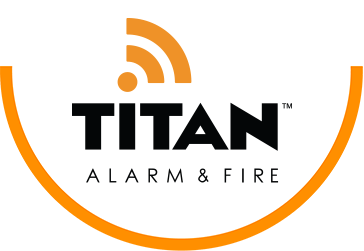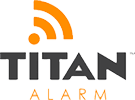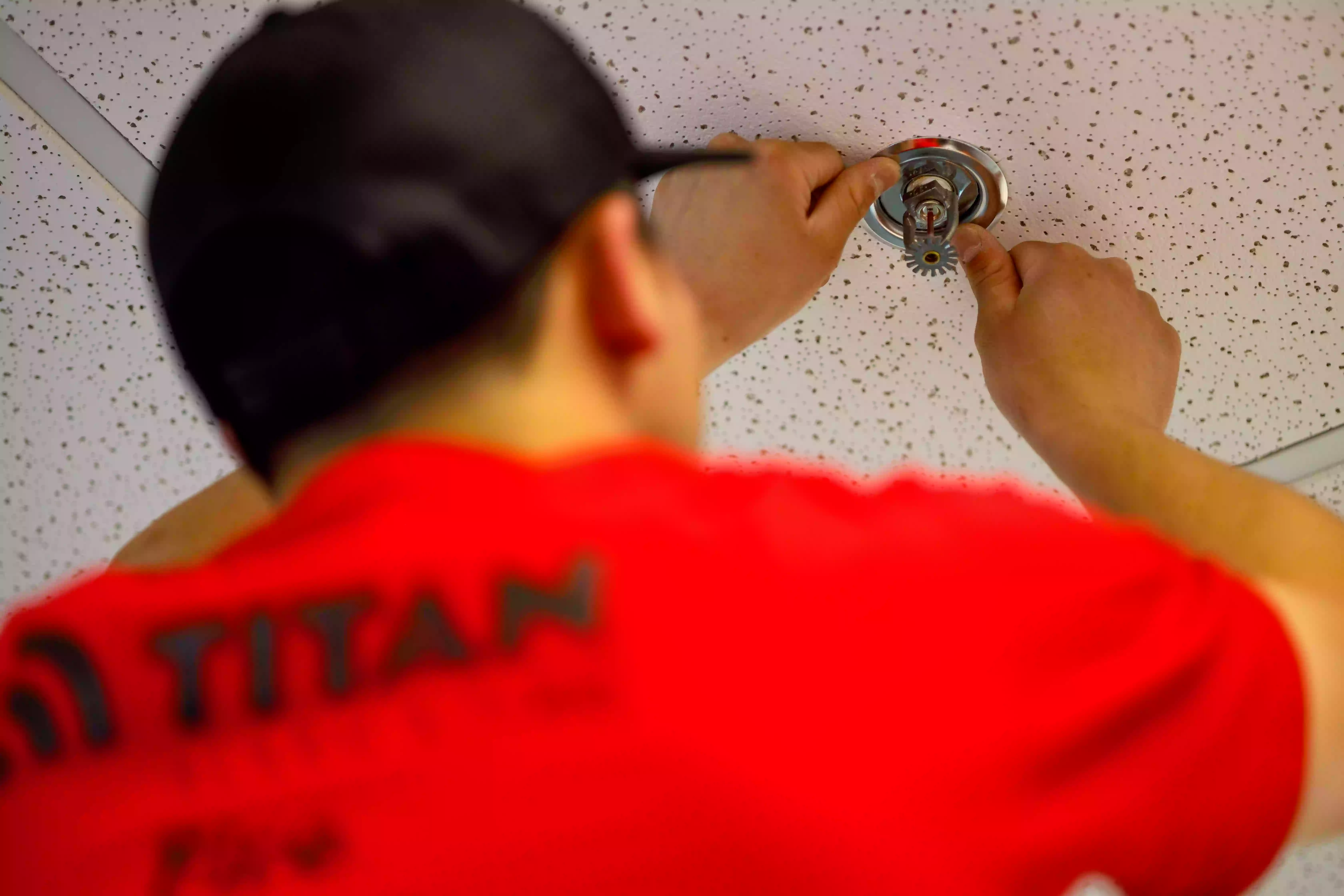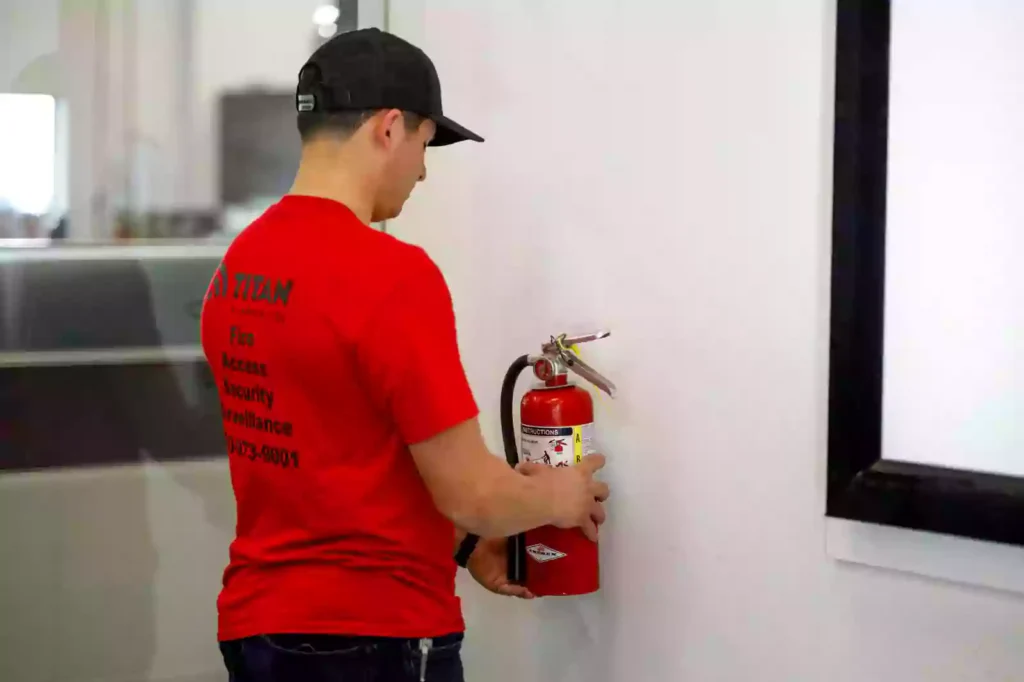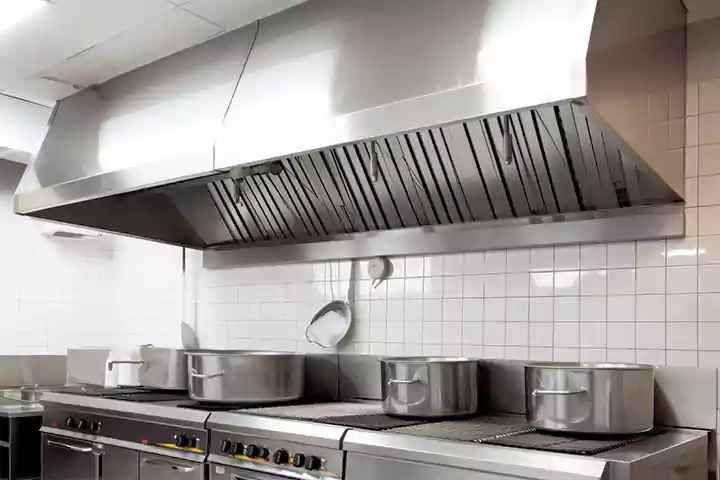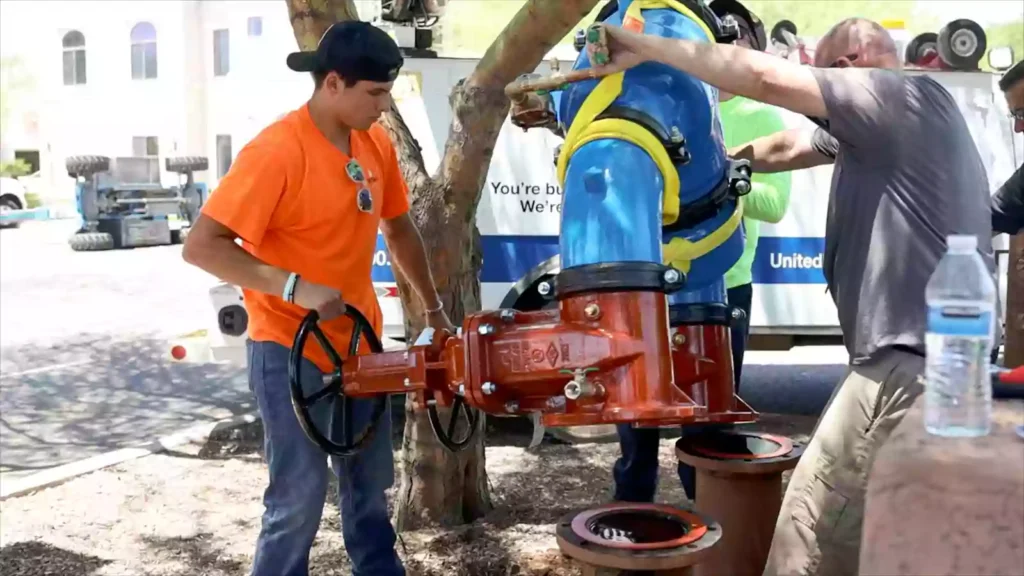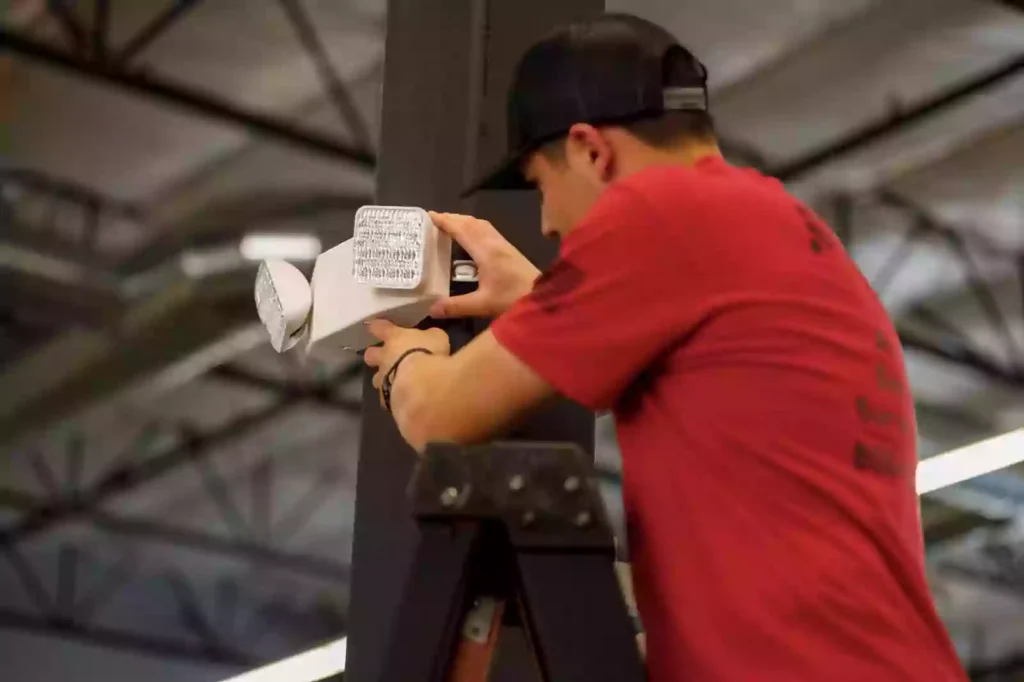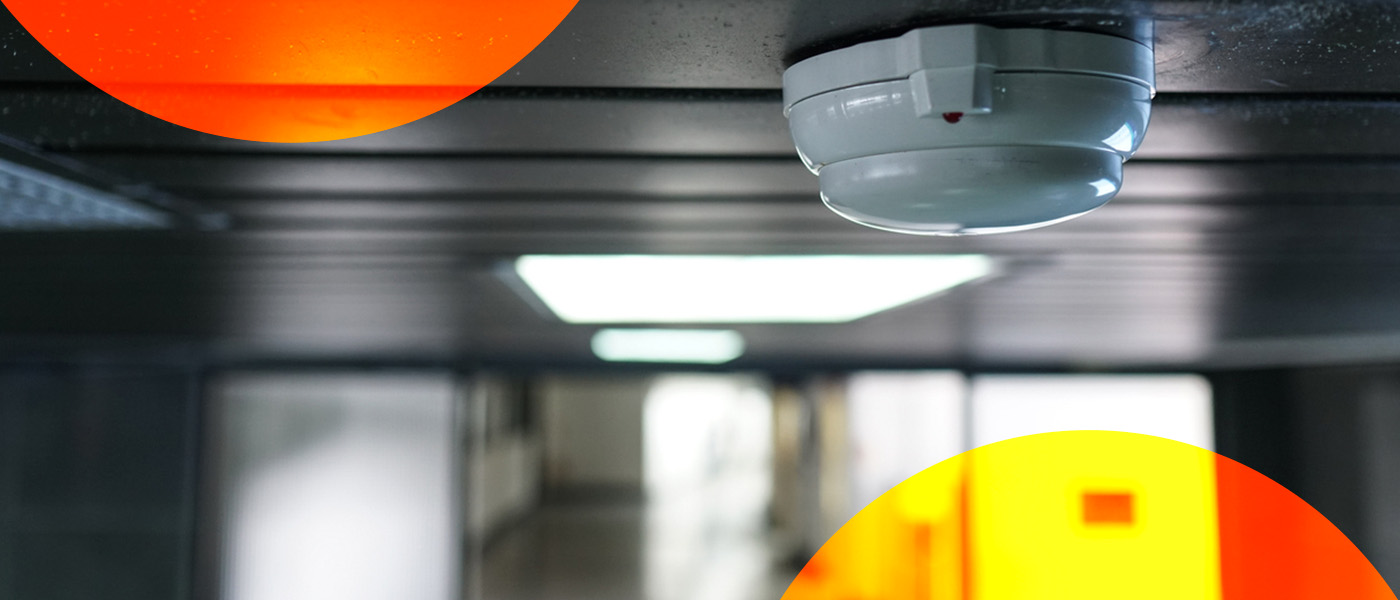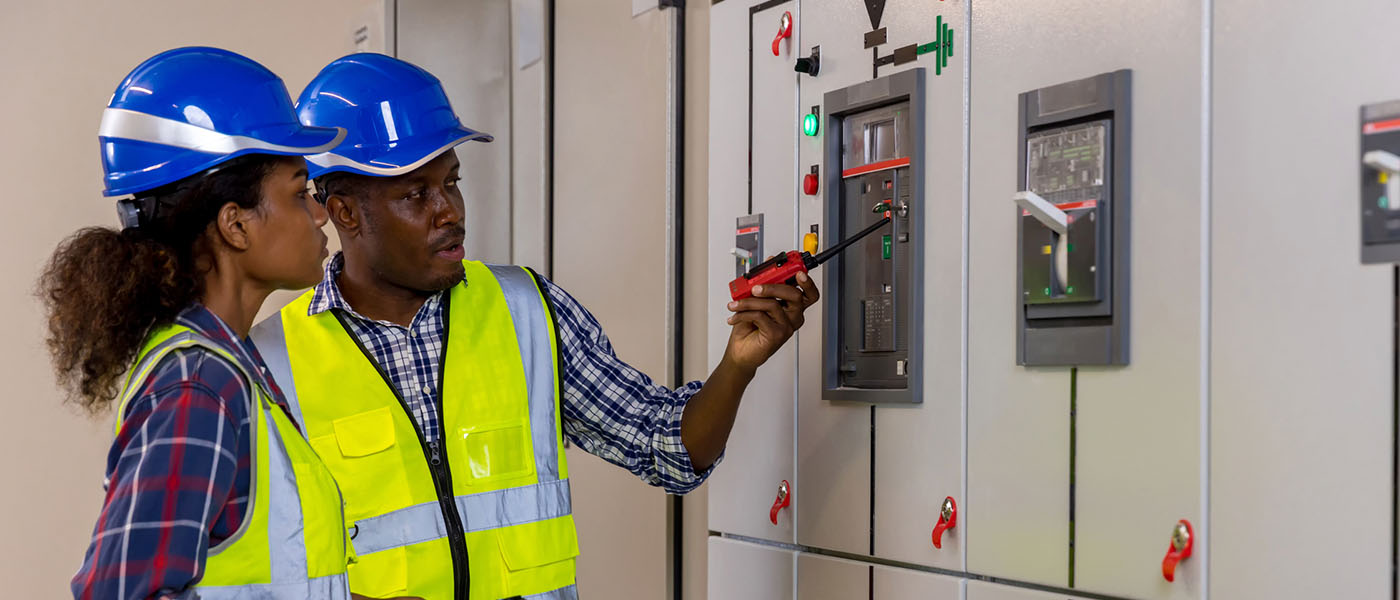If you’re a business owner or manage a property of any kind, there’s one investment you cannot afford to overlook – fire protection. A commercial fire alarm system definitely helps you meet local codes and pass your inspections, but it’s way deeper than that. It’s all about protecting your employees, your customers, your assets, and the future of your business. One of the most common questions we get right off the bat at Titan Alarm & Fire is: How much does a commercial alarm system actually cost?
What’s the answer? Well, it depends! Let’s dive into it. There are multiple factors that will influence the pricing. We’ll help you understand what to expect when budgeting for a commercial alarm system.
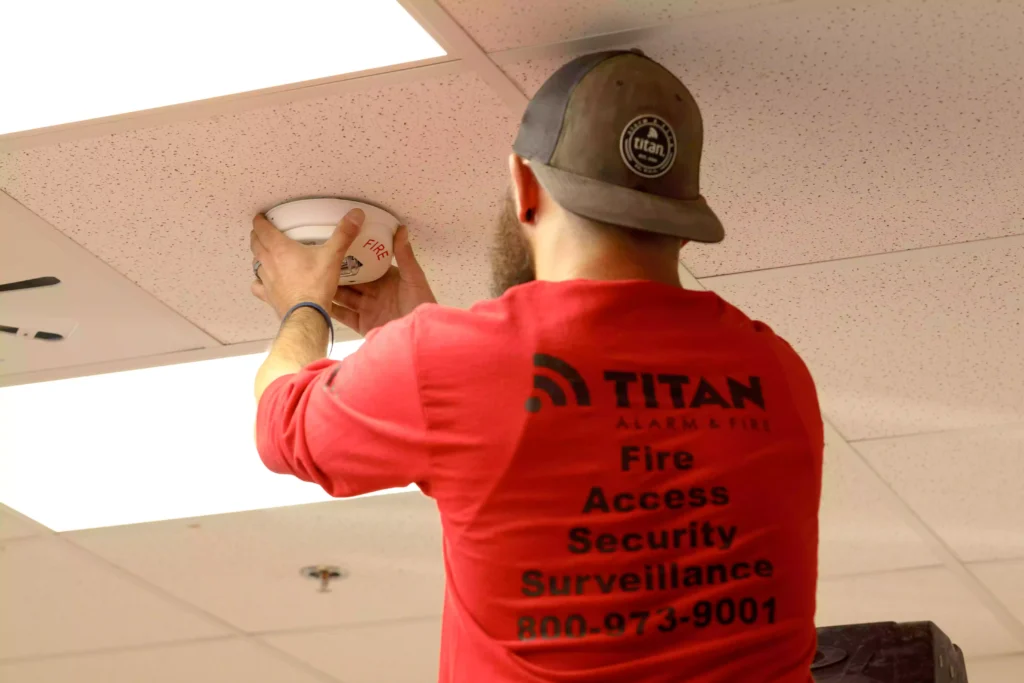
What’s Included in a Commercial Fire Alarm System?
Before diving into the costs, it’s important to understand what a commercial fire alarm system actually includes. These systems usually go far beyond the typical devices that you’d picture, like smoke detectors and sirens. Here are some standard fire alarm system components:
• Fire Alarm Control Panel (FACP):
This is like the brain of the entire system. It monitors and manages all of the connected devices.
• Smoke and Heat Detectors:
These sensors specifically work to alert us of fire or smoke conditions.
• Manual Pull Stations:
These devices are often placed near exits. They’re placed there so that people don’t have to go out of their way to manually pull the alarm. Everyone should be heading towards the exits during an emergency!
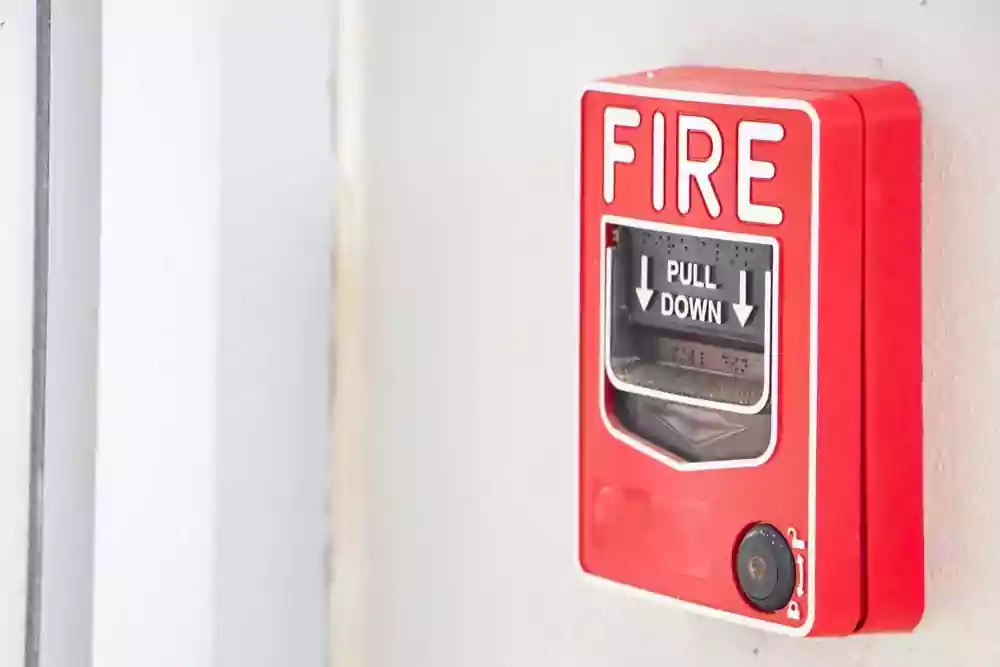
• Notification Appliances:
These include all of the devices that would “notify” you of an emergency, like loud sirens, horns, strobe lights, speakers, etc.
• Monitoring Services:
24/7 remote monitoring is a must! This will alert fire departments automatically in the case of an emergency, whether you’re at the location or not.
• Wiring or Wireless:
The backbone that connects the whole system.
• Backup Power Supply:
What happens if your location loses power? Well, the backup power supply would kick in, ensuring that your system stays online.
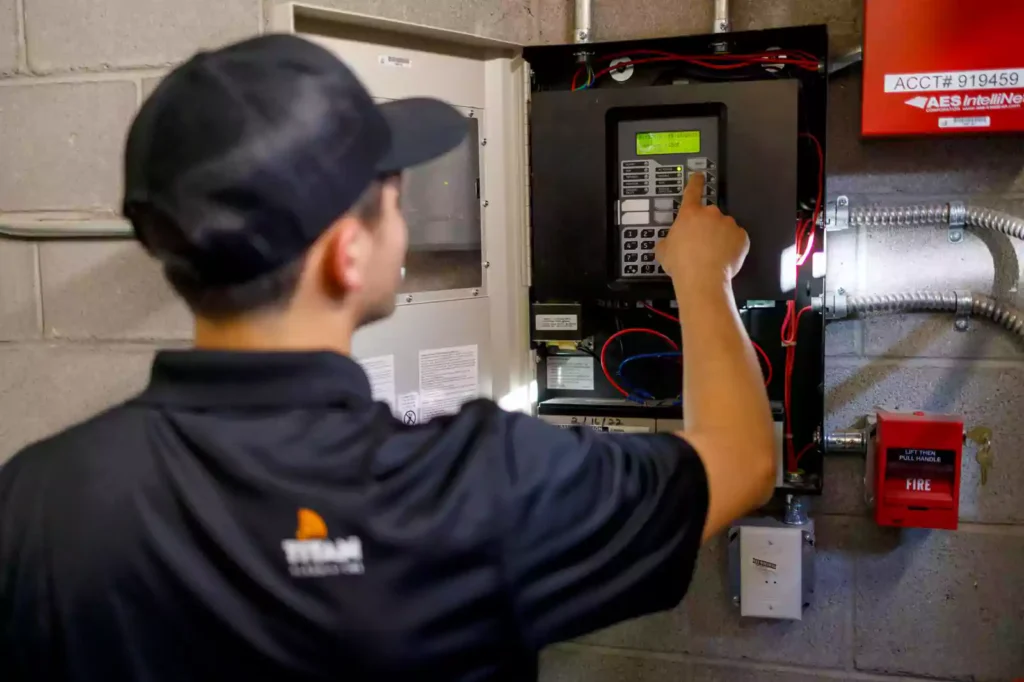
Factors That Affect the Cost of a Commercial Fire Alarm
There are several key factors that impact how much a fire alarm system would cost for your commercial building. Here are some things to think about:
1. Occupancy Type and Usage
The use of the building and the occupancy level heavily impact what’s required. For example, a small retail shop with minimal traffic won’t need as many devices as a large charter school where many people are present throughout the day.
• Retail or Small Office Buildings
They may need basic device coverage with minimal complexity.
• Educational Facilities
They have stricter safety codes, more zones, and require extra notification and control features.
• Warehouses or Industrial Buildings
They may need extra smoke and heat coverage, especially if they have a high ceiling or hazardous areas.
• Healthcare or Assisted Living Facilities
They actually have some of the most demanding requirements due to the needs of the patients, evacuation rules, and life safety procedures.
2. System Complexity
Most commercial systems nowadays are addressable, so the complexity of the system depends on the features your building may require. Some of the complexity comes from things like:
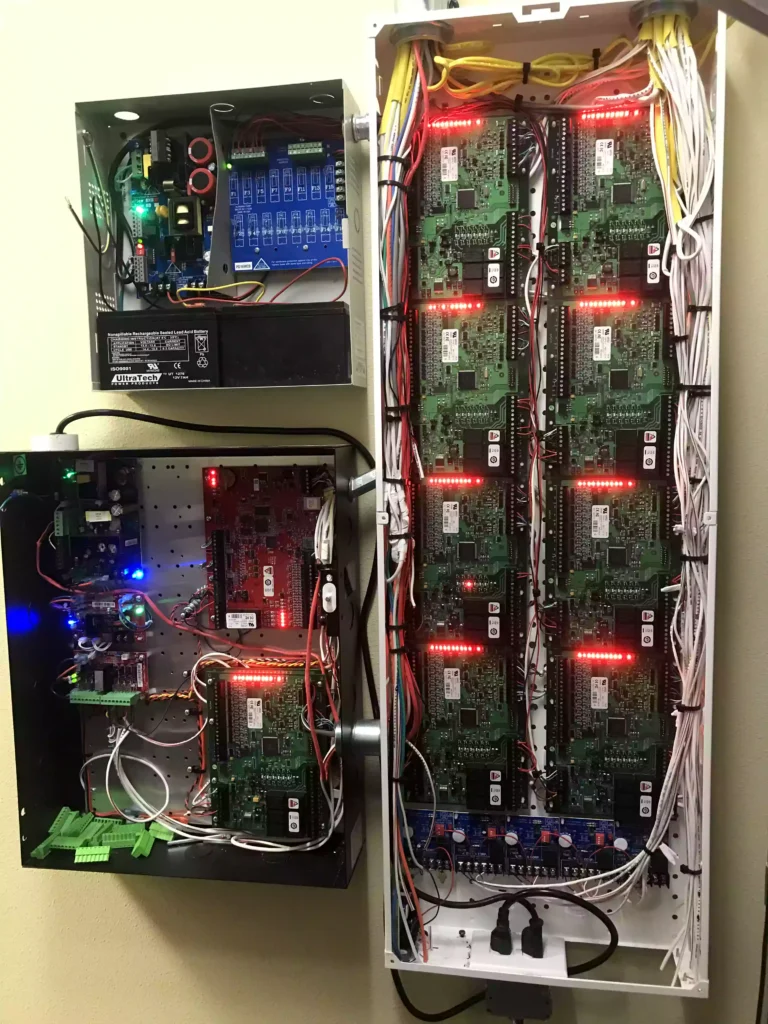
• Elevator Recall:
Programed to force elevators to return to a specific floor in the case of a fire.
• Smoke Doors:
These are doors that automatically close to stop smoke from spreading.
• HVAC Dampers:
These are tied into the fire system to shut off airflow and stop smoke from circulating.
All of these features have to be coordinated with other systems in the building (like HVAC, Elevator control, etc), which increases the complexity of the system.
3. Code Requirements and Local AHJ Standards
Fire codes from one city/state to another can differ. The requirements of your local Authority Having Jurisdiction (AHJ) can actually affect the cost. You might need extra coverage, maybe a voice evacuation system, or enhanced notification for specific types of buildings.

4. Existing Infrastructure
If your building already has some fire protection wiring, like conduits, you might actually save money on the cost of installation. Also, new construction projects projects tend to be cheaper to install than retrofits.
5. Monitoring Services
Professional fire alarm monitoring usually costs anywhere between $30 and $100 per month, depending on the level/type of service and the type of communication (cellular, IP, or landline). I can’t say this enough… Monitoring is absolutely necessary for real-time alerts and faster response times.
6. Installation Labor
Labor costs vary depending on the complexity of the job. Each job is custom and specific to the building, so each job will vary in cost.
7. Maintenance and Inspection
Ongoing maintenance is vital to keeping your system compliant and most importantly, keeping your employees/business safe. Most commercial fire alarm systems require annual inspectionsand some require semiannual inspections.
Real-World Example from Arizona Business
At Titan Alarm & Fire, we’ve worked with businesses all overthe state of Arizona, from restaurants and office spaces to warehouses and schools. Here’s a real-world breakdown:
• A local café (1,200 square feet) needed a basic conventional system.
• A charter school (15,000 square feet) with multiple classrooms and separate buildings needed a full addressable system with voice evacuation.
• A warehouse (1,000,000 square feet) needed full notification throughout the building.
Each of these projects were very different. They all had different goals and requirements. Our team was able to tailor each system to fit the needs of each customer.
How Titan Alarm & Fire Makes the Process Simple ?
Working with a licensed/experienced fire alarm provider like Titan Alarm & Fire makes a difference.
• We handle the design, the permits, installation, inspection, and monitoring.
• We know Arizona fire codes inside and out.
• We install every system per NFPA-72 code.
• Our team supports you every step of the way, starting with the plans, all the way to the fire marshal inspections, and beyond.
How to Get A Quote ?
The only way to know exactly how much a commercial fire alarm system will cost for you and your property is to schedule a free consultation with one of our Senior Account Executives. Our team at Titan Alarm & Fire offers site assessments and will customize a quote based on what you need, your timeline, and your budget.
Final Thoughts
Fire alarm systems are an essential investment when it comes to the safety of your employees and business. They’re also legally required, which makes sense. While the cost can vary quite a bit based on size, features, location, etc, the peace of mind and protection they offer are definitely priceless.
At Titan Alarm & Fire, we believe every Arizona business needs a system that is 100% reliable, code-compliant, and tailored to the needs of the business/building. Whether you’re just opening a new space or upgrading an old system already installed, we’re here to help you out.
Let’s Get Started!
Call us today at (602) 680-4567 or email leads@titanalarm.com to schedule your free consultation.
You can trust Titan Alarm & Fire to protect your business, your people, and your peace of mind.
